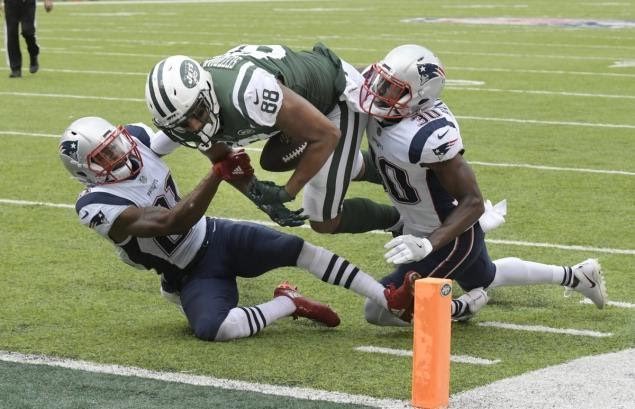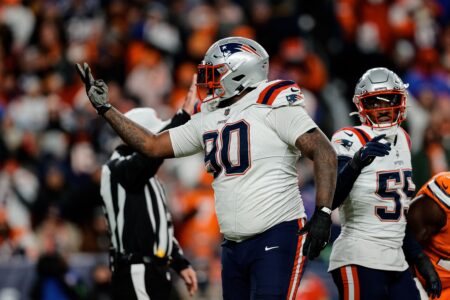Seems to me where the confusion among the players and fandom lies is the notion that TDs are going to be reviewed
While the Ref signaled TD and some think that unless there's clear evidence overturning the call on the field, it appears that when they looked at the replay, they never saw any conclusive evidence that it was a TD in the first place
Thus the call was reversed because the fact simply is that he CLEARLY did not have possession when he crossed the goal line. even though the official initially said he did
There would have had to be evidence that he DID have possession at the time he touched the pylon - and there was not.
So the official erred in his assessment that he had control when crossing the goal line - and the call was reversed.
What COULD have clarified the ruling was a camera angle showing that AFTER he was bobbling the ball, he gained control while touching the pylon.
No such video evidence existed - thus, the reviewers in NY corrected the call.
In summary the officials were looking for two things - did he have possession when crossing the goal line? No he did not.
Did he have possession & was touching the pylon when he finally landed out of bounds? No one knows as there was no camera angle on that.
TD was reversed - as it should have been.
I agree with most of what you wrote, but there is a clarification worth making re: the bolded portion and what came after, as by rule there's actually clear proof that he never re-established possession after the fumble. The rulebook states pretty clearly that, much like securing a catch, securing possession of a fumble is a lot more involved than just grabbing the ball. You have to maintain possession to the point that you become a runner, a point on which Rule 3-7-2 of the NFL Rule Book is very clear:
Item 2. Possession of Loose Ball. To gain possession of a loose ball that has been caught, intercepted, or recovered, a player must have complete control of the ball and have both feet or any other part of his body, other than his hands, completely on the ground inbounds, and then maintain control of the ball long enough to become a runner. A player has the ball long enough to clearly become a runner when, after his second foot is on the ground, he is capable of avoiding or warding off impending contact of an opponent, tucking the ball away, turning up field, or taking additional steps. If the player loses the ball while simultaneously touching both feet or any other part of his body to the ground, there is no possession. This rule applies in the field of play and in the end zone.
By rule, ASJ clearly did not have the ball long enough to become a runner: he was going to the ground when he fumbled it, and therefore to regain possession he would have had to control it through to the ground in bounds, but it's irrelevant because he did not secure the ball through the fall: it came out once again when he hit the ground. Much like a receiver who gets a knee down in bounds is not awarded the catch if he drops the ball as he goes to the ground, ASJ never had possession of the football after the fumble.
Bottom line: the people who are arguing that it was a touchdown do not understand how the possession rules work. The people who are arguing that it should not have been overturned on replay do not understand how the replay rules work. A whole lot of people don't understand either of the two, and that's why we have a ton of controversy now surrounding a ruling that the league office has doubled down and said was not only correct, but was actually quite obvious. It was absolutely, 100% the correct application of a really stupid rule that as a Pats fan I freely concede should not exist. We absolutely got a gift yesterday, but it was in the form of a colossally stupid rule, not a blown call or unreasonable overturn.



















